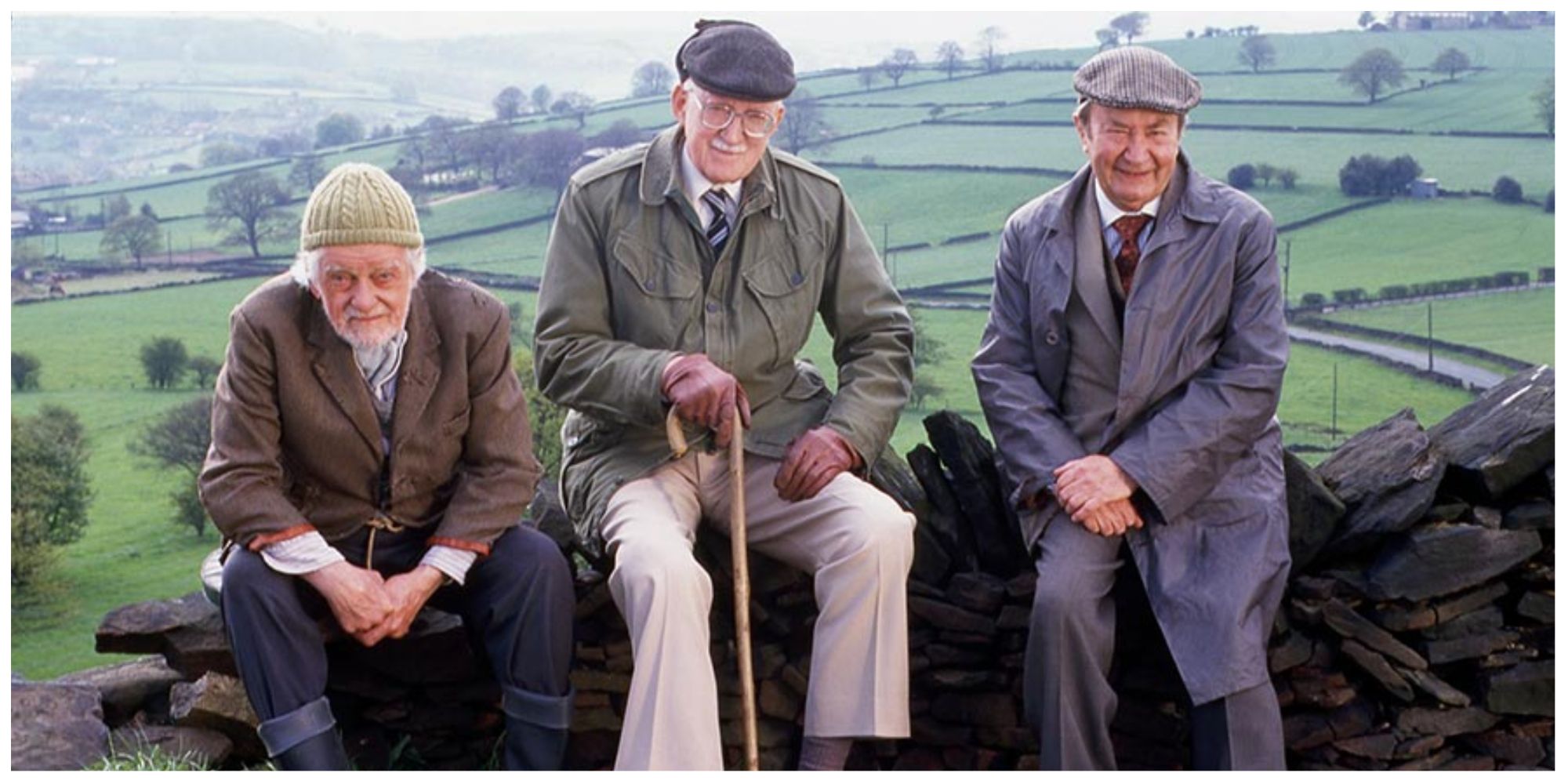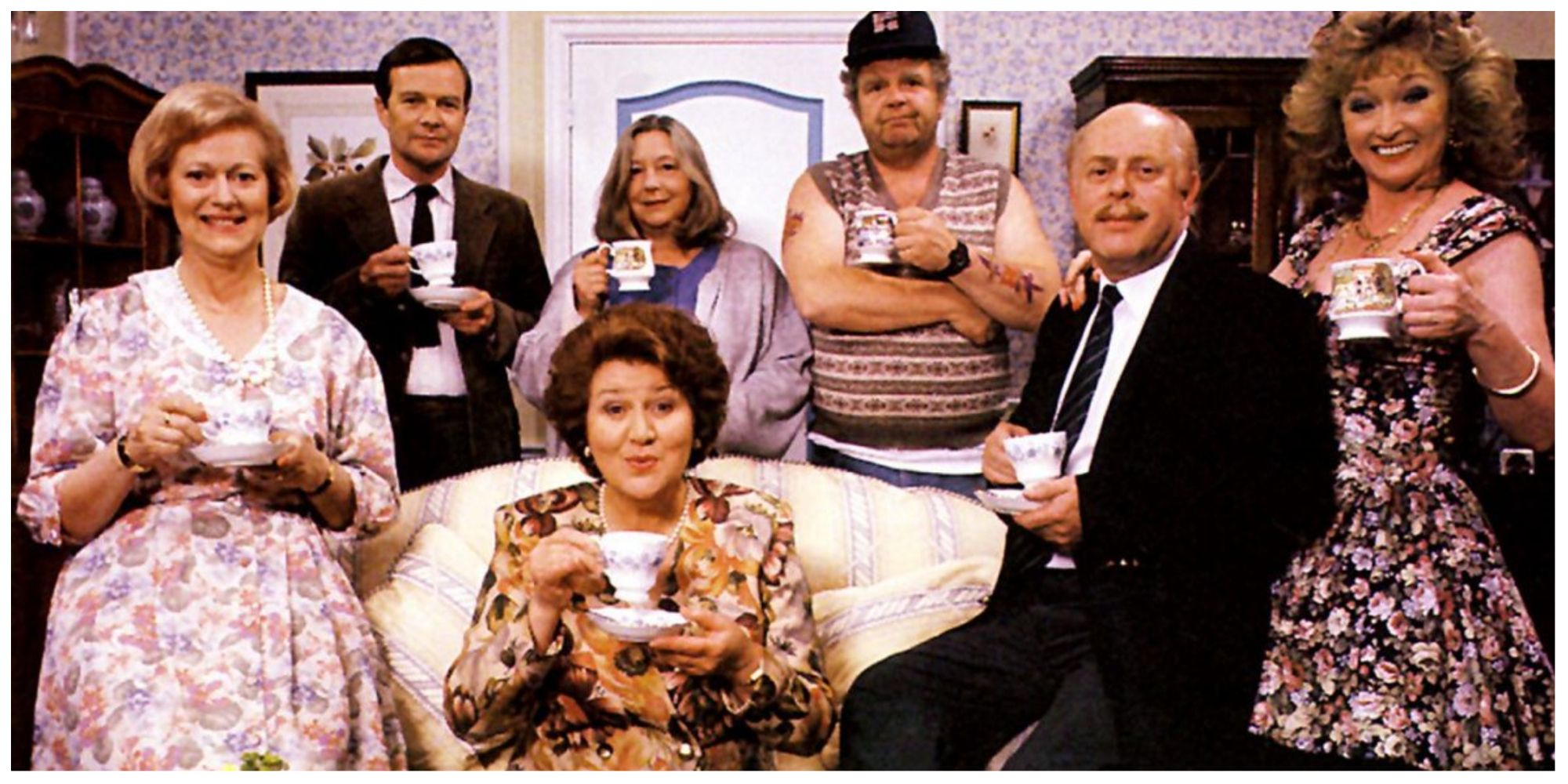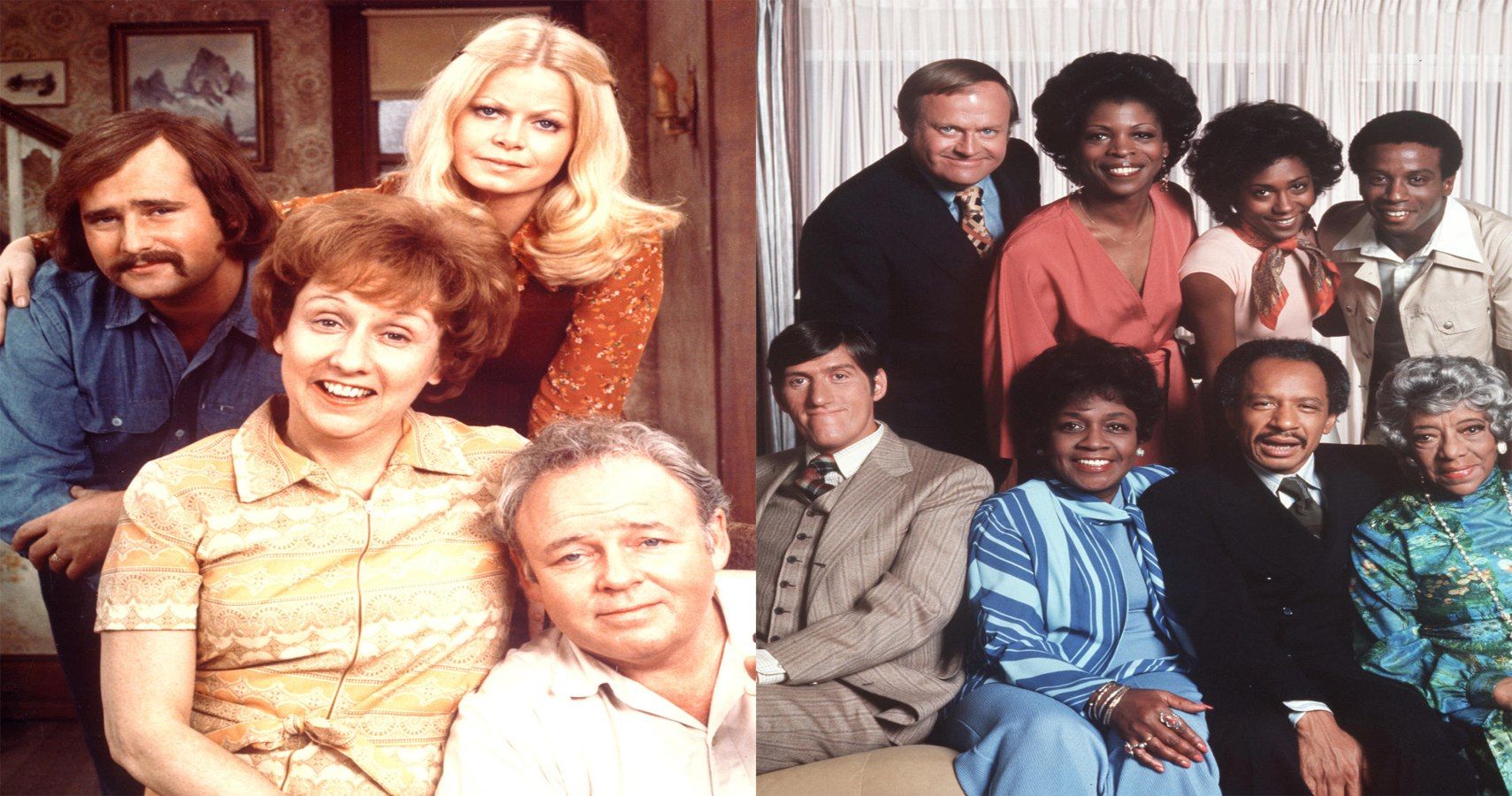The Golden Age: Why 1970s Sitcoms Still Reign Supreme
The 1970s was a truly pivotal and transformative decade for television, particularly for the humble situation comedy. Far from being mere background noise, 1970s sitcoms became cultural touchstones, reflecting and shaping the societal shifts happening across America and beyond. It was a period of immense innovation, where the medium became more diverse, socially conscious, and daring, pushing boundaries that had previously been unthinkable on primetime television.
This era, often hailed as a "golden age" for the genre, saw an explosion of creativity and commercial success. Shows like The Mary Tyler Moore Show, All in the Family, and The Jeffersons weren't just entertaining; they were juggernauts that pulled millions of viewers weekly, sparking conversations in homes across the nation. These iconic 1970s sitcoms, along with many others, captured the spirit of the times, bringing laughter, insight, and often, uncomfortable truths into millions of living rooms. If you’re looking for a nostalgic TV trip, or simply curious about the roots of modern comedy, these 1970s sitcoms are definitely worth revisiting.
Table of Contents
- The Transformative Decade for Television
- Sitcoms: The Unquestioned Kings of Primetime
- All in the Family: Breaking Barriers and Sparking Debates
- The Mary Tyler Moore Show: Redefining Women on Television
- M*A*S*H: Laughter in the Face of Adversity
- Good Times: A Tale of Two Shows and Social Commentary
- Beyond the Juggernauts: Hidden Gems and Cult Classics
- The Legacy of 1970s Sitcoms: More Than Just Laughs
The Transformative Decade for Television
The 1970s was a time of significant upheaval and change across the globe, and television, as a powerful mirror of society, reflected this tumult. During this era, the media landscape was vastly different from today. There were only three major networks – ABC, CBS, and NBC – as streaming was yet to be imagined, and cable had yet to meet a broader market. This meant that shows were so uniformly watched that they often achieved staggering viewership numbers, becoming shared national experiences. This shared viewing experience amplified the impact of shows, especially 1970s sitcoms, allowing them to truly shape public discourse and cultural norms. This period saw television becoming more diverse, innovative, and socially conscious. Below is a summary of popular styles of television shows in the 1970s, highlighting how sitcoms, or situation comedies, continued to dominate primetime television. Unlike earlier decades, where sitcoms often presented idealized family units and sanitized realities, the 1970s ushered in an era of "relevant" comedies. These shows tackled real-world issues, from racism and poverty to feminism and war, often with a sharp wit and an unflinching gaze. This shift made 1970s sitcoms not just sources of entertainment, but also platforms for social commentary and cultural dialogue.Sitcoms: The Unquestioned Kings of Primetime
Indeed, sitcoms were king in the 1970s. It was a golden age for the genre, both creatively and commercially, with shows like The Mary Tyler Moore Show, All in the Family, and The Jeffersons pushing the boundaries of what was acceptable and expected from a half-hour comedy. The sheer volume of new content was remarkable; more than 100 new sitcoms were aired in the United States during this time. This vast output meant a rich tapestry of comedic styles, from slapstick to satire, from domestic squabbles to workplace humor. The 1970s was arguably the greatest decade for sitcoms of all time, birthing numerous sitcoms that entertained audiences with humor and wit. These sitcoms captured the spirit of the times and brought laughter into millions of homes. The unique viewing experience of the 70s, where families gathered around a single television set, fostered a communal appreciation for these shows. Watching TV sitcoms in the 70s was a different experience than today; it was a shared event that often led to discussions long after the credits rolled. From 'All in the Family' to 'Barney Miller,' 'M*A*S*H' and more, your guide to 122 classic TV sitcoms of the 1970s offers a glimpse into this prolific period. There are even guides to 106 classic (and not so classic) comedies that are great fun to revisit and remember, proving the enduring appeal of these shows.All in the Family: Breaking Barriers and Sparking Debates
No discussion of 1970s sitcoms would be complete without acknowledging the groundbreaking impact of All in the Family. Premiering in 1971, this show immediately redefined the genre. It broke away from the sanitized, often saccharine comedies of previous decades, daring to bring controversial topics like racism, sexism, homophobia, and the Vietnam War directly into the living room of the Bunker family. The show was a cultural phenomenon, consistently ranking as one of the most-watched programs on television. Its ability to tackle complex social issues while still delivering sharp, often uncomfortable, humor made it an instant classic and a benchmark for future comedies.Archie Bunker: A Mirror to Society
At the heart of All in the Family was Archie Bunker, a working-class man who constantly squabbled with his family over the important issues of the day. Archie, portrayed brilliantly by Carroll O'Connor, was an outspoken bigot, a blue-collar conservative whose views clashed constantly with his liberal daughter Gloria and her progressive husband Mike "Meathead" Stivic. His character, though deeply flawed, was surprisingly complex. He wasn't just a caricature; he was a reflection of a segment of American society, prompting viewers to confront their own biases and prejudices. The show’s brilliance lay in its ability to make audiences laugh at Archie’s ignorance while simultaneously exposing the absurdity and harm of his views. It sparked genuine, often heated, discussions in homes across the country, making it a truly revolutionary piece of television.Spin-offs and Lasting Legacy
The immense popularity and cultural relevance of All in the Family led to several successful spin-offs, further cementing its legacy among 1970s sitcoms. The most notable of these was The Jeffersons, which followed Archie and Edith’s former neighbors, George and Louise Jefferson, as they moved from Queens to a deluxe apartment in Manhattan. The Jeffersons, which premiered in 1975, was groundbreaking in its own right, becoming one of the longest-running sitcoms with a predominantly Black cast. It tackled issues of race, class, and upward mobility with its own unique blend of humor and social commentary, proving that the "relevant" sitcom model could be applied to diverse narratives. These shows, along with Maude (another successful spin-off), are among the best of the decade and highlight the pivotal role of the 1970s for the sitcom genre.The Mary Tyler Moore Show: Redefining Women on Television
While All in the Family challenged social norms through confrontation, The Mary Tyler Moore Show offered a different, yet equally revolutionary, perspective. Premiering in 1970, this sitcom centered on Mary Richards, a single, independent woman in her thirties who moves to Minneapolis to start a new life after a broken engagement. She lands a job as an associate producer at a local TV news station, WJM-TV, and navigates the challenges of her career and personal life. The show was groundbreaking for its portrayal of a single, career-oriented woman who wasn't defined by her relationships with men. Mary Richards was competent, intelligent, and independent – a stark contrast to many female characters on television at the time. The show explored themes of female friendship, workplace dynamics, and the pursuit of personal fulfillment outside of marriage and family. Its humor was sophisticated, witty, and character-driven, relying on the brilliant ensemble cast and sharp writing rather than laugh tracks or broad physical comedy. The Mary Tyler Moore Show not only entertained but also inspired a generation of women, making it one of the most beloved and influential 1970s sitcoms. It proved that a sitcom could be both incredibly funny and deeply meaningful, paving the way for more nuanced and realistic portrayals of women on television.M*A*S*H: Laughter in the Face of Adversity
Another titan among 1970s sitcoms was M*A*S*H, which debuted in 1972. While set during the Korean War, the show was widely understood as an allegory for the Vietnam War, which was still raging when it premiered. The premise itself was unique for a sitcom: The staff of an army hospital in the Korean War find that laughter is the best way to deal with their grim situation. This blend of dark humor, drama, and anti-war sentiment made M*A*S*H stand out. The show followed the lives of doctors, nurses, and support staff at the 4077th Mobile Army Surgical Hospital, using humor as a coping mechanism against the horrors of war. It was lauded for its sharp writing, strong character development, and its ability to seamlessly weave comedic moments with poignant, often heartbreaking, dramatic ones. Unlike traditional sitcoms, M*A*S*H often broke the mold, forgoing laugh tracks in some scenes and tackling serious ethical and moral dilemmas. Its finale in 1983 remains one of the most-watched television episodes in history, a testament to its enduring impact and its status as one of the most significant 1970s sitcoms. It showed that comedy could be used to explore profound human experiences, even in the most dire circumstances.Good Times: A Tale of Two Shows and Social Commentary
Good Times, a spin-off of Maude (which itself was a spin-off of All in the Family), premiered in 1974 and quickly became a significant entry in the pantheon of 1970s sitcoms. The show depicted the lives of the Evans family, an African-American family struggling to make ends meet in the Chicago projects. As the data kalimat suggests, "Good Times is a tale of two shows." Initially, it aimed to be a realistic portrayal of poverty and the challenges faced by urban Black families, infused with humor and strong family bonds. The early seasons focused on the struggles of James and Florida Evans to provide for their three children, often tackling serious issues like unemployment, discrimination, and gang violence with a dramatic undertone. However, as the series progressed, particularly after the departure of actor John Amos (who played James Evans), the show shifted its focus more heavily towards the comedic antics of the eldest son, J.J. Evans, and his catchphrase "Dy-no-mite!" This shift, while popular with audiences, often drew criticism for sacrificing realism for broader comedy. Despite this evolution, Good Times remains an important part of 1970s television history, offering a rare glimpse into the lives of a working-class Black family and contributing to the diversity of voices on primetime. It underscored the decade's willingness to bring previously underrepresented communities to the forefront of mainstream entertainment.Beyond the Juggernauts: Hidden Gems and Cult Classics
While some shows became cultural icons, others faded into obscurity. Throughout the 1970s, there was great innovation and variety in the sitcom market, leading to more than 100 new sitcoms being aired in the United States during this time. This means that beyond the widely celebrated classics, there's a treasure trove of hidden gems and cult favorites waiting to be rediscovered. These shows, though not as celebrated, offer a delightful glimpse into the comedic sensibilities of the era and the diverse range of topics explored. For instance, while Barney Miller might not have had the same cultural omnipresence as All in the Family, its witty, character-driven humor set in a New York City police precinct was highly acclaimed and still holds up today. Similarly, shows like Welcome Back, Kotter captured the spirit of the times with its focus on inner-city education and a diverse group of students. Many of these lesser-known 1970s sitcoms explored niche communities, unique professions, or experimental comedic styles, proving the breadth of creativity during this golden age.British Invasion: A Glimpse at UK Sitcoms
It's also worth noting that the influence of 1970s sitcoms wasn't confined to the United States. Pages in the category "1970s British sitcoms" show that the UK also had a vibrant and prolific output of comedies during this decade. With 136 pages in this category, out of 136 total, it's clear that British humor was thriving. Shows like Fawlty Towers, Dad's Army, and Are You Being Served? became international sensations, showcasing a distinct brand of humor often characterized by witty dialogue, social satire, and eccentric characters. These British counterparts further illustrate the global impact and creative energy of sitcoms during this period, offering a different flavor of comedic genius that complements the American offerings.The Enduring Appeal of '70s Sitcoms
Why revisit these classic 1970s sitcoms today? Because, as one guide states, "Some of these shows are great, some of them are awful, but all of them are worth revisiting." This sentiment captures the essence of the decade's television output. Even the "awful" ones can offer valuable insights into the comedic trends and cultural norms of the time. Those looking for classic '70s situation comedy need look no further than these 1970s sitcoms that are still hilarious today. They offer a unique blend of nostalgia, social commentary, and timeless humor. Revisit the best TV sitcoms of the '70s and discover some fun facts along the way. Whether it's the sharp wit of The Mary Tyler Moore Show, the confrontational humor of All in the Family, or the poignant comedy of M*A*S*H, these shows continue to resonate because they dared to be more than just funny – they were reflections of a changing world.The Legacy of 1970s Sitcoms: More Than Just Laughs
The 1970s was a golden age for sitcoms, with many shows making lasting impressions on audiences and forever altering the landscape of television comedy. These 1970s sitcoms captured the spirit of the times and brought laughter into millions of homes, but their impact goes far beyond mere entertainment. They paved the way for future generations of comedies, proving that sitcoms could be intelligent, thought-provoking, and socially relevant. The willingness to tackle sensitive subjects, explore diverse characters, and push the boundaries of network television established a new paradigm for the genre. From the pioneering efforts of Norman Lear with shows like All in the Family and its spin-offs, which demonstrated the power of comedy to provoke dialogue on pressing social issues, to the sophisticated humor and feminist undertones of The Mary Tyler Moore Show, the decade set a high bar. Even the British 1970s sitcoms contributed significantly to the global comedic lexicon. The sheer volume and variety of shows, from the top 10 sitcoms of the ‘70s to the hidden gems, underscore the incredible creativity of the era. The best TV shows of the 1970s, many of which were sitcoms, continue to be discussed, analyzed, and enjoyed by new generations, a testament to their enduring quality and cultural significance. They remind us that laughter, when crafted with intelligence and purpose, can be a powerful tool for understanding ourselves and the world around us.The legacy of 1970s sitcoms is undeniable. They taught us to laugh at ourselves, to confront uncomfortable truths, and to find humor even in the face of adversity. Their influence can still be seen in modern comedies, which continue to draw inspiration from the daring and innovative spirit of that transformative decade. So, whether you're a long-time fan or a curious newcomer, dive into the world of 1970s sitcoms. You'll find a rich, diverse, and often surprisingly relevant collection of shows that are truly worth revisiting. What are your favorite 1970s sitcoms? Share your picks in the comments below!

10 Best British Sitcoms

10 Best British Sitcoms

10 Hit Sitcoms From The 70's That Wouldn't Fly Today